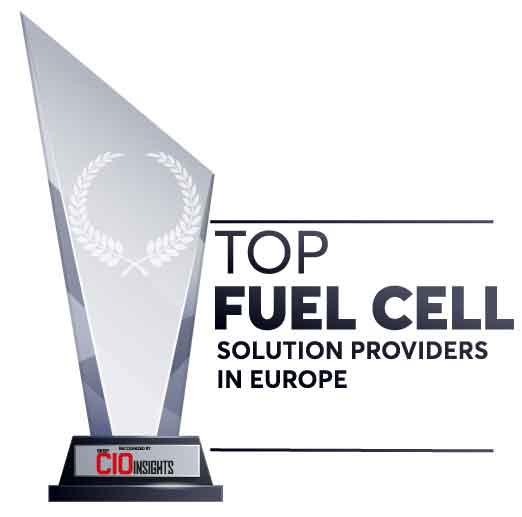The technology around generating clean renewable energy is evolving quickly and fuel cells are among the most versatile. Fuel cells provide critical energy backup for many large facilities, and they provide primary energy for some remote locations. Some homes and vehicles also rely on fuel cells.
A fuel cell is similar to a battery; it is a device that generates electricity through an electrochemical reaction using hydrogen and oxygen. Unlike traditional power sources, fuel cells are clean, efficient, reliable, and quiet. According to the U.S. Department of Energy, fuel cells are generally between 40-60 percent energy efficient in contrast to a typical car engine that is about 25 percent energy-efficient. The byproducts are electricity, heat, and water. Moreover, as fuel cells generate electricity through chemistry rather than combustion, it achieves higher efficiencies than steam turbines and internal combustion engines. This eliminates the costs associated with handling and storing toxic materials like battery acid or diesel fuel. Further, there are no environmental impacts of fuel spillage, leaks, or air pollution.
Fuel cells are scalable, which means that individual fuel cells can be joined with one another to form stacks and these stacks can in turn be combined into larger systems. These systems can vary greatly in size and power, from combustion engine replacements for electric vehicles to large-scale, multi-megawatt installations providing electricity directly to the utility grid. Due to its modular nature, fuel cells can be engineered precisely to meet a variety of customer power needs—whether for material handling, stationary power, or on-road electric vehicles. Compared to batteries, fuel cells save money, it eliminates the need to change, charge, and manage batteries—saving both labor/time and space. Fuel cells run longer than batteries and can be refueled in as little as two minutes, substantially reducing downtime. Thus, fuel cells offer a long-term, sustainable solution to help meet the world’s need for clean and reliable energy.
At this juncture, there is a wide variety of solutions providers entering the industry with a set of advanced and integrated fuel cell solutions offerings. To help companies navigate through the best-of-breed fuel cell solution providers, Energy CIO Insights has compiled a list of ‘Top 10 Fuel Cell Solution Providers in Europe—2020.’ The enlisted organizations are transforming the energy sector and how homes, offices, industries, and vehicles are powered. Besides, the magazine also comprises insights from thought leaders in the sector on the industry trends, best practices, recent innovations, and their advice for the aspiring CIOs.
We present to you Energy CIO Insights’, “Top 10 Fuel Cell Solution Providers in Europe—2020.”

![AFC Energy PLC [LON: AFC]: Hydrogen Power for the Net-Zero Carbon Future AFC Energy PLC [LON: AFC]: Hydrogen Power for the Net-Zero Carbon Future](https://www.energycioinsights.com/uploaded_images/magazine_img/t94xjcover.jpg)



![AFC Energy PLC [LON: AFC] AFC Energy PLC [LON: AFC]](https://www.energycioinsights.com/company_logos/thnxf222.jpg)









